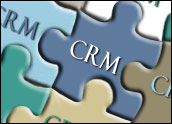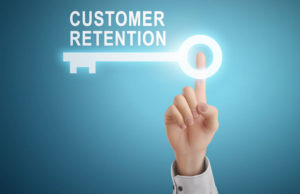
This story was originally published on Jan. 26, 2012, and is brought to you today as part of our Best of ECT News series.
The way the concept of CRM is defined during the sales process can sow the seeds of its ultimate failure. Because the decision makers are often sales managers rather than actual salespeople, the pitch is usually made that CRM makes it easier for the managers to manage their sales staff. Which is true.
But what’s in it for the sales staff? They’re the ones who will spend extra time entering data into the CRM application. If its purpose is to give their bosses more information with which to browbeat them, why would they use it?
Of course, CRM is much more than that — and it’s most effective when it has more data entered into it. That doesn’t result in managerial success — it means success for the entire sales team and success for the entire business. So how do you get past the perception that CRM is an eavesdropping tool for sales managers and instead is a tool that helps everyone in the organization?
Simple. You have to sell the sales staff on CRM. You can do it. If you’re in sales, you’ve probably sold things in the past that bring benefits that are fewer in number and harder to track.
Here are five suggestions to help you demonstrate to your sales team that using CRM will make their lives easier and their commission checks larger.
1. Use CRM as a Memory Accelerator
Contact management is a very basic function of CRM, and it’s a critical capability for salespeople. With sales teams shrinking, quotas rising, and sales pros constantly begging for greater numbers of leads from marketing, at some point the data becomes overwhelming. No one has a head that can hold all of this, nor can it be kept — and easily accessed — for long in a spreadsheet before it becomes overwhelming.
However, once that data is entered into CRM, it’s there for good. It’s accessible and easily modified if need be. Think of it as an assistant for the sales pro’s brain; instead of devoting brain power to remembering where data on prospects and customers is hiding on the desk or on the desktop, sales pros can go to a single source, get the data they need quickly — and then devote the rest of their mental energy to selling.
2. Let CRM Help Organize Your Activities
Salespeople have complicated calendars, especially if what they sell has a long sales cycle. That can result in a reminder system to help them follow up with calls or collateral when the time is right. These are usually home-grown systems, and home-grown systems often start to groan under heavy burdens.
If you should increase the number of leads you’re working on by 30 percent, would your jury-rigged Outlook-based reminder system hold up? CRM is great for building these reminders into your daily process, and they can help you standardize your sales processes so that you never forget to schedule a follow-up call.
Moreover, they also provide you with a record of your follow-up activities. Even if you don’t include notes from a call, the fact that you know you made it is useful — and probably more than you’re tracking right now.
3. Share Intelligence via CRM
Of course, salespeople are fiercely jealous of the accounts they’re working. That makes sense. However, it also makes sense to compare notes. If one selling approach is working, why keep it under your hat? Being the most successful salesperson in a failing sales organization is gratifying only up to the point that your company declares bankruptcy.
Tracking selling patterns allows salespeople to see what works for them and what might work for others. Instead of having the sales manager impose a set of “best practices,” salespeople can develop and share them among themselves.
CRM also makes it much easier to get productive when territories shift or when responsibilities change; instead of learning the lay of the land from scratch, the sales pro inheriting the region or market can immediately access the captured record of the business’ behavior there and use that data to get up to speed.
4. Access Social Data Through CRM
If you’re in sales, especially on the B2B side, you may already check on prospects by looking them up on LinkedIn. CRM is becoming increasingly attuned to the social world — and instead of having to look up prospects’ or customers’ social profiles manually each time, salespeople can tap socially enabled CRM applications that pull this data into the customer record for posterity.
Some CRM applications now include sales intelligence tools, like InsideView, that automatically provide social media data each time a customer’s record is opened. Instead of having to fish through the entire social media world, these emerging tools allow salespeople to get the information that’s most useful to them rapidly. They can devote more time to selling and less time to looking things up on the Internet.
5. Ensure Recurring Sales With CRM
While the immediate benefits to sales are nice, the behind-the-scenes benefits to sales are great as well. The customer record is useful to customer support, which can understand the relationship between the customer and the company and use it to provide better service.
It’s also a big help to marketing, which can better segment the customer audience for its messages and use the data to hunt down better-qualified leads. As a result, salespeople will encounter happier customers when it comes time to renew a contract, sell a replacement product, or upsell a customer to a new product or service.
Support and marketing may not be the salesperson’s responsibility, but how well those responsibilities are carried out has a direct impact on the salesperson’s success with recurring business. By starting the process of documenting customer relationships, salespeople are laying the groundwork for success today and down the road.






















































